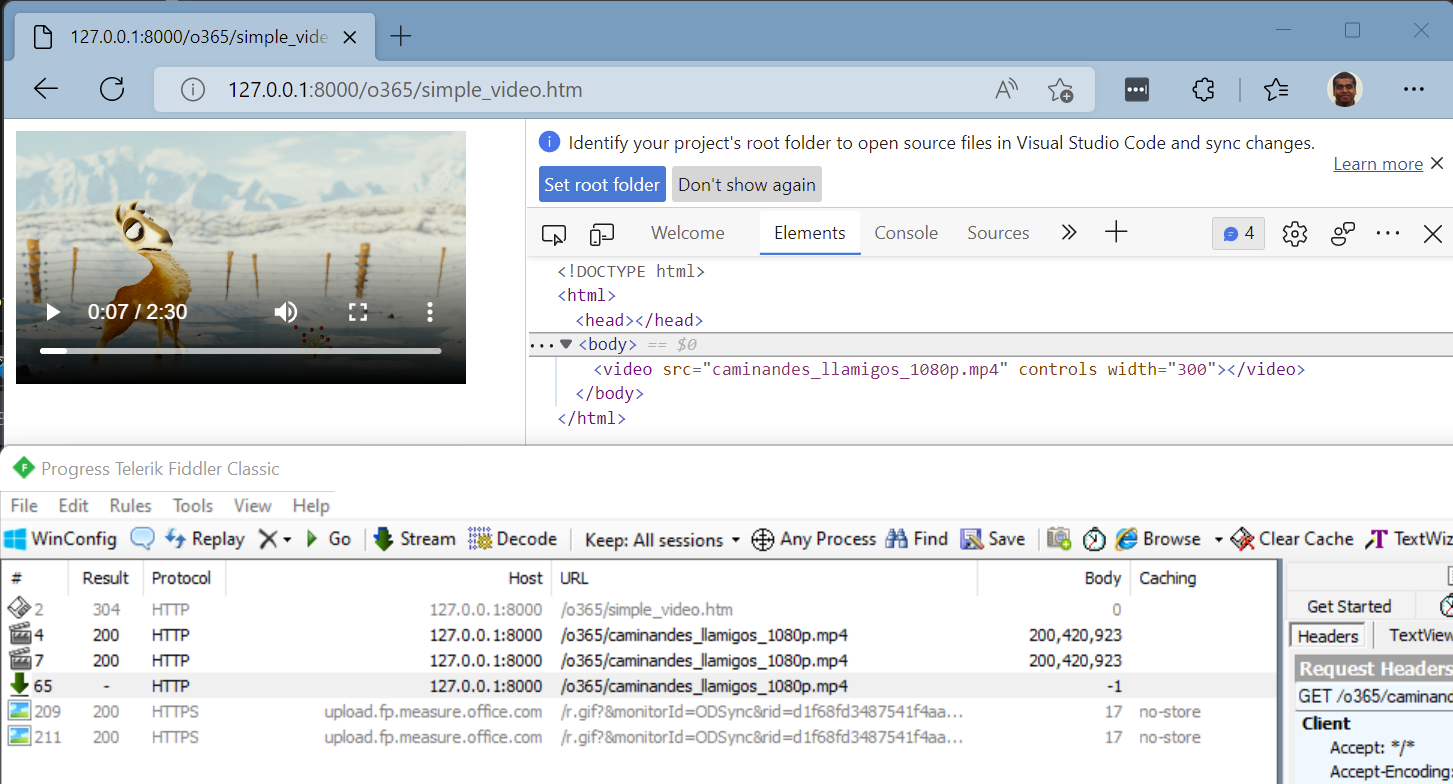Multiple Network request for a simple video file
Sushanth Rajasankar
Hello,
I am seeing some strange networking behavior with respect to media playback and wanted to know if there is an explanation for this.
For a simple markup like
<!DOCTYPE HTML>
<HTML>
<video src="caminandes_llamigos_1080p.mp4" controls width="300">
</HTML>
I would expect the video file – the whole 200 MB of it to be downloaded once.
Instead, fiddler sees two downloads of the entire file upon page load in chromium plus an additional connection when I click play.
The server I am using here is just python3 -m http.server to serve this file from my disk.

Looking at the code
- Some URL properties are populated from the first response and if any property changes, for example an accepts header is discovered the code redirects to a new URLData
As a part of this redirect some cached bytes are copied over, but what should stop the original HTTP connection ? the original one seems to download to completion.
FWIW, I checked with Firefox and see a single network request so this doesn’t seem like a spec compliance overhead, atleast right away.
Q1. Is this a known issue with a reason for it to be this way ?
Q2. Is there a specific response expected from the server to prevent these multiple downloads ?
Thanks,
Sushanth
Dale Curtis
--
You received this message because you are subscribed to the Google Groups "media-dev" group.
To unsubscribe from this group and stop receiving emails from it, send an email to media-dev+...@chromium.org.
To view this discussion on the web visit https://groups.google.com/a/chromium.org/d/msgid/media-dev/CH2PR00MB077915A931C97D64122BAC40FDA29%40CH2PR00MB0779.namprd00.prod.outlook.com.
guest271314

<script>
const video = document.querySelector('video');
video.onplay = () => console.log(video.currentTime);
video.onended = () => console.log(video.currentTime);
</script>
Dan Sanders
--
Sushanth Rajasankar
Thank you – Dan !
I see, that makes sense now. Ill try with a server that supports range requests and report back.
Is there a log or place in code (breakpoints) you looked at to figure out the reasons for these requests ?
